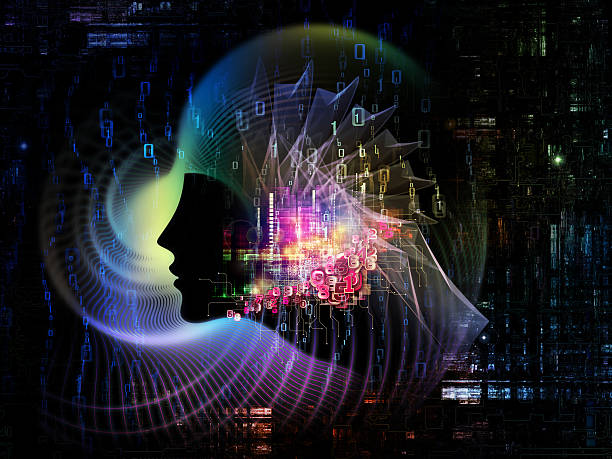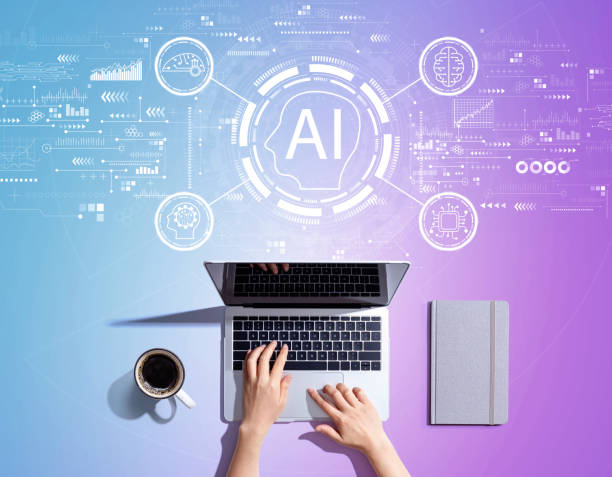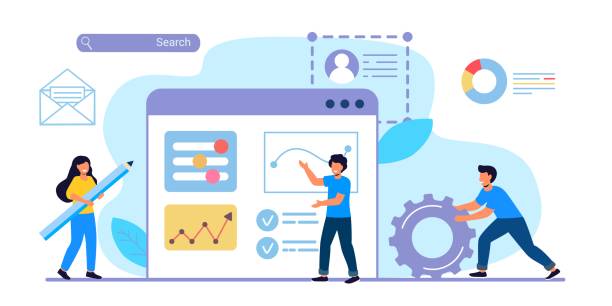Introduction to Artificial Intelligence and Labor Market Transformations
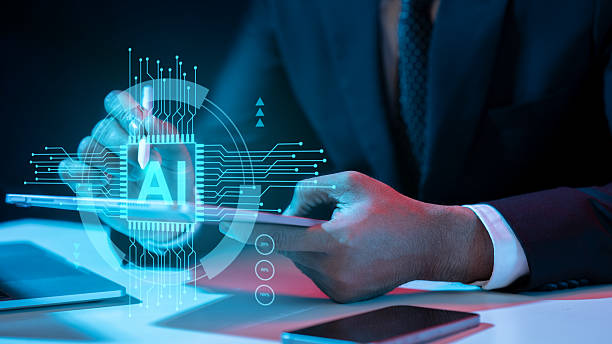
Artificial Intelligence (#AI) is rapidly changing the global job market, and these transformations not only alter existing jobs but also create entirely new roles.
Many analysts believe that the future of AI jobs is more promising than concerning, heralding unparalleled opportunities.
This technology, with its ability to automate repetitive tasks and analyze vast amounts of data, leads to increased productivity and added value.
For example, data-driven jobs like data analysts and machine learning engineers are experiencing rapid growth, and the need for specialists in these fields is more acute than ever.
This transformation requires the workforce to arm itself with new skills.
Consequently, a deep understanding of the nature of artificial intelligence and its applications is no longer an advantage; it has become a necessity.
We must adopt a long-term perspective on the impact of artificial intelligence on the economy and society and prepare for the changes ahead.
These changes may include retraining and upskilling to align with the flow of this technology.
In this regard, a precise understanding of future opportunities and challenges is vital for everyone, from students to experienced professionals.
This section serves as an initial analytical overview, examining the general aspects of this topic and providing the groundwork for deeper discussions in subsequent chapters.
#Artificial_Intelligence
Is your current e-commerce website design causing you to lose customers and sales?
Rasaweb is your solution with modern, user-friendly e-commerce website designs!
✅ Significantly increase conversion rates and sales
✅ Build strong branding and gain customer trust
⚡ Get a free e-commerce website design consultation from Rasaweb!
New Career Horizons in the Age of Artificial Intelligence
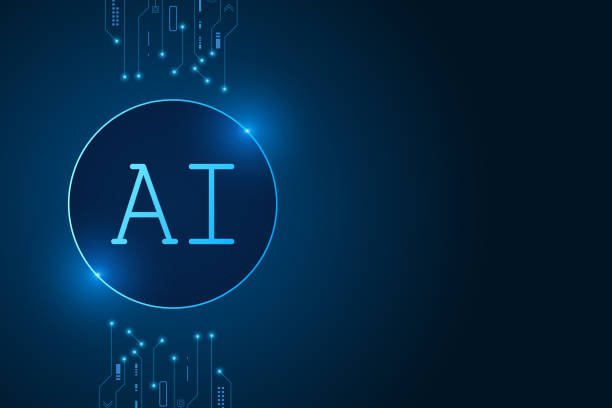
The advent of artificial intelligence has not only led to the elimination of traditional jobs but has also opened new doors to emerging job opportunities.
These roles often require a combination of technical and soft skills that were previously less emphasized.
For example, Prompt Engineers, who specialize in interacting with Large Language Models (LLMs), are one of the newest professions related to AI technologies.
Other roles such as Data Scientist, Machine Learning Engineer, AI Ethics Specialist, and even User Experience Designer for intelligent systems are all experiencing increasing demand.
To enter these fields, individuals must continuously learn and update their knowledge.
Online courses, bootcamps, and specialized certifications can provide a suitable path to acquire the necessary skills.
Companies are also seeking individuals who can not only work with AI tools but also solve complex problems and provide creative solutions.
Therefore, the future of AI jobs is highly dependent on individuals’ ability to adapt and acquire new skills.
These new horizons indicate that despite concerns, artificial intelligence is creating a dynamic and diverse job ecosystem that requires diverse talents and innovative approaches.
This section serves as a guide, outlining pathways for those interested in entering these new professions and helping them gain the necessary readiness.
Acquiring Essential Skills for Success in the Age of Artificial Intelligence
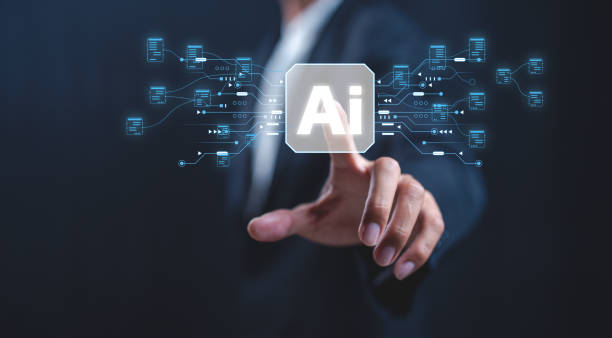
To adapt to the extensive labor market transformations driven by artificial intelligence, acquiring a set of vital skills is essential.
These skills can be divided into two main categories: hard (technical) skills and soft skills.
In terms of technical skills, proficiency in programming languages like Python, familiarity with machine learning and deep learning concepts, and the ability to work with data analysis tools and related libraries (such as TensorFlow or PyTorch) are of high importance.
Additionally, understanding the statistical and mathematical concepts that underpin AI algorithms helps individuals not only use these tools but also develop and improve them.
On the other hand, soft skills are equally vital.
The ability to problem-solve, critical thinking, creativity, adaptability, and communication skills helps individuals succeed in dynamic and complex work environments.
Given that artificial intelligence automates many routine tasks, the need for skills that machines are incapable of performing ( such as complex human interactions and ethical decision-making) increases.
The following table lists the most important skills for the future of AI jobs:
| Skill Category | Skill | Description |
|---|---|---|
| Technical Skills | Programming (Python, R) | Basis for developing and implementing AI models |
| Technical Skills | Machine Learning and Deep Learning | Specialized knowledge in AI algorithms and models |
| Technical Skills | Data Analysis and Statistics | Ability to collect, clean, and interpret data |
| Soft Skills | Critical Thinking and Problem Solving | Ability to evaluate information and find innovative solutions |
| Soft Skills | Creativity and Innovation | Generating new ideas and approaches |
| Soft Skills | Adaptability and Continuous Learning | Ability to adapt to changes and acquire new knowledge |
Challenges and Concerns Facing the Workforce
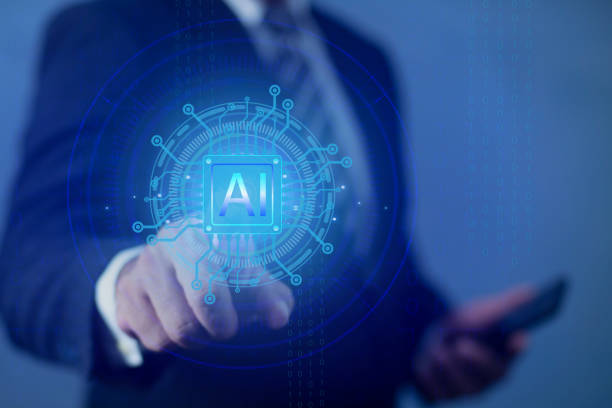
Alongside the countless opportunities created by artificial intelligence, there are also serious challenges and concerns regarding the future of AI jobs.
One of the biggest concerns is job displacement.
Many routine and repetitive tasks currently performed by humans will be automated by artificial intelligence and robotics in the future.
This can lead to job loss for a portion of the workforce, especially in sectors such as manufacturing, customer service, and transportation.
The main question is whether the pace of new job creation by AI can keep pace with the rate of old job losses? Another issue is inequality.
If access to new training and skills is not provided equitably, the gap between those who can work with AI and those who cannot will widen.
This inequality can lead to serious social and economic challenges.
Furthermore, ethical issues related to artificial intelligence, such as algorithmic biases, data privacy, and accountability for AI decisions, are other important concerns.
Companies and governments must adopt policies to manage this transition and support the affected workforce.
Extensive retraining programs, financial support, and the development of ethical frameworks for artificial intelligence are among the solutions to address these challenges.
These concerns are real and require a comprehensive and planned approach to mitigate their negative effects.
The important question is how can we ensure that the transformations driven by artificial intelligence benefit everyone, not just a select few?
Are you worried your company’s old website is driving away new customers? Rasaweb solves this problem with modern and efficient corporate website design.
✅ Increases your brand’s credibility.
✅ Helps attract targeted customers.
⚡ Contact Rasaweb for a free consultation!
The Transformative Role of Educational Institutions in the AI Era
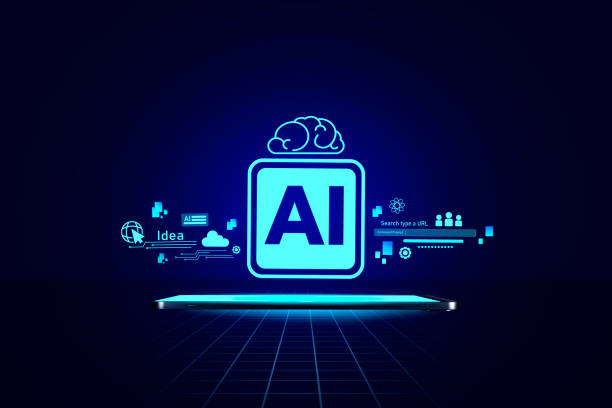
Educational institutions, from universities to vocational training centers, play a pivotal role in shaping the future of AI jobs.
With the astonishing pace of artificial intelligence advancement, these institutions must rapidly update their curricula and define new fields in line with the needs of the future labor market.
This includes creating specialized courses in machine learning, deep learning, natural language processing, robotics, and AI ethics.
The goal is to train a generation of specialists who not only possess strong technical knowledge but are also capable of creative thinking and solving complex real-world problems.
In addition to formal education, the expansion of online learning platforms and short-term courses for retraining the current workforce is also of high importance.
These platforms enable individuals to acquire new skills and prepare for future roles without needing to attend university full-time.
Collaboration between universities and industry is also vital to ensure that educational programs align with the real needs of the labor market.
This collaboration can include joint research projects, internships, and designing courses with the active participation of companies.
Furthermore, priority should be given to developing soft skills such as critical thinking, problem-solving, and teamwork, which artificial intelligence cannot replace.
This section emphasizes the strategic importance of education in ensuring a smooth and successful transition to the future AI-driven job market and provides guidance for students and job seekers.
Transformation of Various Industries with the Advent of Artificial Intelligence
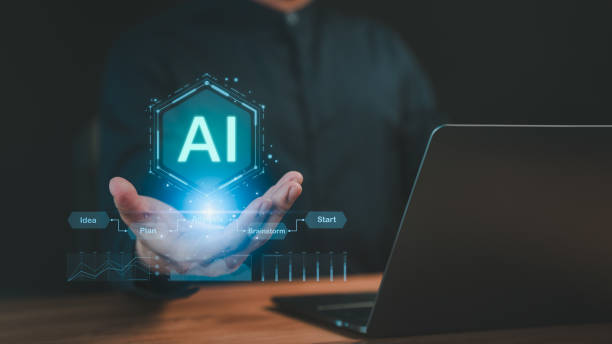
Artificial intelligence is redefining the nature of operations and job roles across a wide range of industries.
In the healthcare sector, artificial intelligence assists in disease diagnosis, new drug development, and personalized treatments, leading to a need for medical AI specialists and health data analysts.
In the financial industry, AI is used for fraud detection, risk management, and providing personalized financial advice, which requires FinTech specialists with AI knowledge.
Manufacturing has also been revolutionized by smart automation, robotics, and predictive analytics for machine maintenance, increasing the need for robotics engineers and industrial data specialists.
Even in the retail industry, artificial intelligence is employed to optimize supply chains, predict demand, and provide personalized shopping experiences.
These transformations not only mean the loss of some jobs but also the creation of completely new and exciting job roles within each of these industries.
For example, specialists who can customize artificial intelligence models for the specific needs of an industry, or individuals who oversee the ethics and standards of these systems, will be in high demand.
This section, by providing specific examples, clarifies the extensive dimensions of artificial intelligence’s impact on the economy and demonstrates how the future of AI jobs presents a unique outlook in each sector, providing countless opportunities for specialists.
This expert analysis helps individuals choose their career path in line with the future needs of various industries.
Individual Strategies for Adapting to the AI Job Future
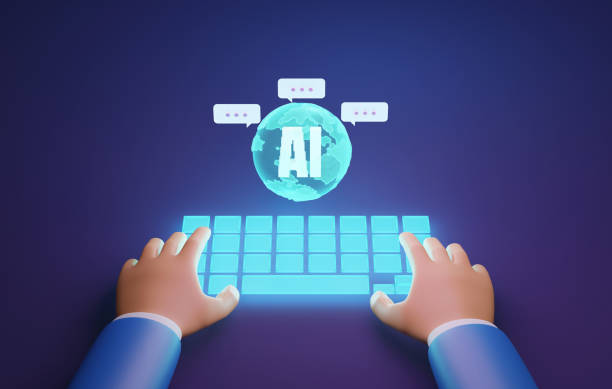
To succeed in a work world rapidly influenced by artificial intelligence, we need to adopt proactive individual strategies.
The first step is embracing the concept of lifelong learning.
The required skills and knowledge are constantly changing, and one should never stop learning.
This includes participating in training courses, studying specialized articles, attending webinars, and even gaining practical experience with AI tools.
Strengthening soft skills mentioned earlier, including critical thinking, creativity, problem-solving, and emotional intelligence, can make a significant difference, as these are areas where artificial intelligence cannot fully replace humans.
Active networking with professionals in the field of artificial intelligence and related industries can help you identify new opportunities and gain valuable insights.
Furthermore, you should focus on developing expertise in areas where artificial intelligence can act as an assistive tool, not a replacement.
For example, if you are active in design, learning how to use artificial intelligence tools to improve your design process can create a competitive advantage.
Finally, having an adaptable and flexible mindset to embrace changes is one of the most important factors for success in the future of AI jobs.
The following table lists new jobs and areas where artificial intelligence has an impact:
| Job Title (Example) | Primary Responsibilities | Required Skills |
|---|---|---|
| Machine Learning Engineer | Designing, implementing, and deploying ML models | Python, TensorFlow/PyTorch, Statistics |
| AI Ethics Specialist | Reviewing ethical and social dimensions of AI, formulating frameworks | Philosophy, Law, Social Sciences, AI understanding |
| Data Scientist | Collecting, analyzing, and interpreting data for decision-making | Statistics, Programming, Databases, Communication |
| Prompt Engineer | Optimizing instructions for large language models | Linguistics, Creativity, LLMs understanding |
| AI Architect | Designing overall structures of artificial intelligence systems | Distributed Systems, Cloud Computing, ML Ops |
Artificial Intelligence and the Enhancement of Creative Professions

Contrary to the common perception that artificial intelligence merely affects routine and technical jobs, this technology has significant potential to enhance and develop creative professions.
In fields such as graphic design, writing, music, and art, artificial intelligence can act as a powerful assistant.
For example, AI Generative Art tools can rapidly produce visual ideas, allowing designers more time to conceptualize and refine their creativity.
In writing, artificial intelligence tools can assist with drafting, brainstorming, and even grammatical correction, but human nuances, emotions, and tone still require the intervention of a creative writer.
Musicians can use AI to generate melodies, arrangements, or even analyze sound patterns, but the passion and emotion of a piece of music created by a human are irreplaceable.
This aspect of the future of AI jobs demonstrates that AI is not intended to replace human creativity but rather to elevate it to new levels.
This collaboration between humans and machines allows creative professionals to focus on the strategic and conceptual parts of their work and leverage AI for time-consuming and repetitive tasks.
This entertaining yet realistic perspective reveals countless potentials for the creative coexistence of humans and artificial intelligence in the future and assures those interested in artistic and creative professions that new paths will be opened for them.
Does your current corporate website not reflect your brand’s credibility and power as it should? Rasaweb solves this challenge for you by designing a professional corporate website.
✅ Increases brand credibility and visitor trust
✅ Attracts more targeted customers
⚡ Click for a free consultation!
Policymaking and a Sustainable AI Job Future
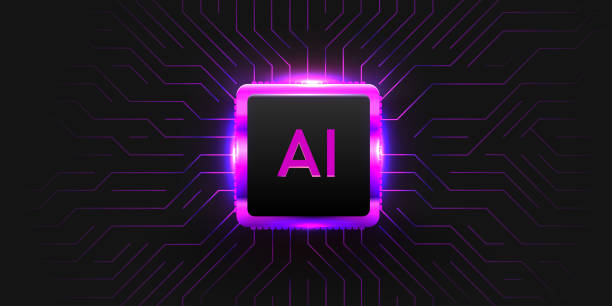
Managing the transformations caused by artificial intelligence and ensuring a sustainable job future requires intelligent and comprehensive policymaking from governments and organizations.
National-scale retraining and upskilling programs are crucial to help individuals whose jobs are affected by automation.
These programs must provide easy and equitable access to the necessary training for future jobs.
Additionally, discussions are underway regarding Universal Basic Income (UBI) or other social safety nets to support individuals who may be temporarily or permanently displaced from the labor market.
Furthermore, the development of ethical and legal frameworks for the development and deployment of artificial intelligence is of paramount importance.
These frameworks must cover aspects such as transparency, fairness, accountability, and data privacy.
AI governance plays a significant role in shaping how this technology impacts society and the economy, including the future of AI jobs.
International cooperation is also essential to address the global challenges posed by artificial intelligence.
Governments, companies, academic institutions, and civil society must collaborate to ensure that artificial intelligence is developed in a way that benefits humanity, not just a select few.
This analytical section reminds us that our job future is not merely the result of technological advancement but largely the outcome of political and social decisions made today.
This is thought-provoking content that prompts us to reflect on our collective responsibility.
Conclusion and Final Outlook: Coexistence with Artificial Intelligence

Ultimately, it can be said that the future of AI jobs is complex, multifaceted, and full of opportunities and challenges.
Artificial intelligence is a powerful tool that can increase productivity, provide innovative solutions, and improve the quality of life.
However, as we have seen, its transformations require continuous preparation and adaptation from individuals, educational institutions, industries, and governments.
Jobs that rely solely on repetitive and predictable tasks will likely be most affected, while roles requiring creativity, critical thinking, emotional intelligence, and human communication skills will gain more value.
Lifelong learning, flexibility, and the ability to synergize with artificial intelligence are key to success in this new era.
Instead of fearing complete replacement, we should focus on collaborating with AI to augment human capabilities and define new tasks that were previously impossible.
The ultimate vision is that the future labor market will move towards a state where humans and artificial intelligence work together, each contributing to the other with their strengths.
This coexistence can lead to a more dynamic economy and richer job opportunities, provided we plan for it consciously.
This article, as an explanatory and analytical guide, aimed to examine various aspects of the job landscape related to artificial intelligence and provide pathways for preparing for these transformations.
Frequently Asked Questions
| Question | Answer |
|---|---|
| How will artificial intelligence impact the future job market? | Artificial intelligence will automate repetitive jobs, but at the same time, it will create new and more complex jobs in areas such as the development, maintenance, and training of AI systems. |
| Which jobs are most at risk of being replaced by artificial intelligence? | Jobs that involve repetitive, rule-based tasks and with low need for creativity or emotional intelligence, such as some manufacturing jobs, data entry, and simple customer service, are most at risk. |
| What skills are essential for success in the future job market with the presence of artificial intelligence? | Skills such as critical thinking, complex problem-solving, creativity, emotional intelligence, data literacy, the ability to work with AI, and lifelong learning are of high importance. |
| Will artificial intelligence cause widespread unemployment? | Some jobs will be lost, but history has shown that new technologies, instead of widespread unemployment, transform the labor market and create new jobs. The need for adaptation and retraining is crucial. |
| What new job opportunities emerge with the advent of artificial intelligence? | Jobs such as Machine Learning Engineer, Data Scientist, AI Ethicist, Human-AI Interaction Designer, and Digital Transformation Consultant are among the new opportunities. |
| What is the role of education in preparing for the future job market with artificial intelligence? | Education must focus on developing soft skills, computational thinking, digital literacy, and the ability to continuously learn to prepare individuals for future changes. |
| How can I prepare myself for the labor market changes caused by artificial intelligence? | You can prepare yourself by learning new skills related to artificial intelligence and data, strengthening soft skills, developing critical and creative thinking, and adopting a habit of lifelong learning. |
| Will AI ethics become an important job field? | Yes, given the increasing concerns about biases, privacy, and automated decision-making of artificial intelligence, the role of AI ethics specialists will become crucial for ensuring its responsible development. |
| What is the importance of human-AI collaboration in the future of work? | Human-AI collaboration, rather than competition, will shape the future of the job market. Artificial intelligence can be a tool to increase productivity and allow humans to focus on more complex and creative tasks. |
| Which industries will be most affected by artificial intelligence? | Almost all industries will be affected, but fields such as healthcare, finance, transportation, manufacturing, education, and customer service are pioneers in the adoption and transformation by artificial intelligence. |
And other services of Rasa Web advertising agency in the field of advertising
Smart Conversion Rate Optimization: Designed for businesses seeking online growth through user experience customization.
Smart Data Analysis: A fast and efficient solution to increase click-through rates by focusing on marketing automation.
Smart Data Analysis: A fast and efficient solution for digital branding with a focus on attractive user interface design.
Smart Advertising Campaign: Revolutionize click-through rate increases with the help of precise audience targeting.
Smart Direct Marketing: A novel service to increase click-through rates through attractive user interface design.
And over a hundred other services in the field of internet advertising, advertising consultation, and organizational solutions
Internet Advertising | Advertising Strategy | Advertorials
Sources
Artificial Intelligence and Its Impact on Jobs in Digiato
The Future of Work with Artificial Intelligence in Zoomit
Challenges of Employment with the Advent of Artificial Intelligence in ISNA
Artificial Intelligence Opportunities in the Job Market from IRNA’s Perspective
💡 Ready to transform your business in the digital world? Rasaweb Afarin Digital Marketing Agency, specializing in responsive website design, SEO optimization, and professional social media management, assists you on the path to growth and achieving big goals.
📍 Tehran, Mirdamad Street, next to Bank Markazi, Kazeroun Jonoubi Alley, Ramin Alley, No. 6
☎️ 02126406207

